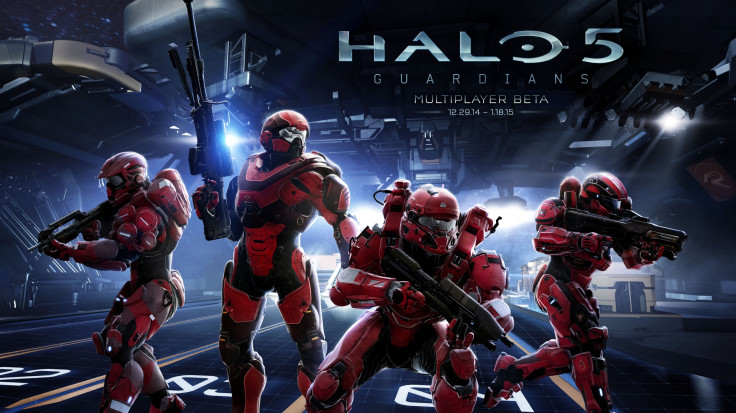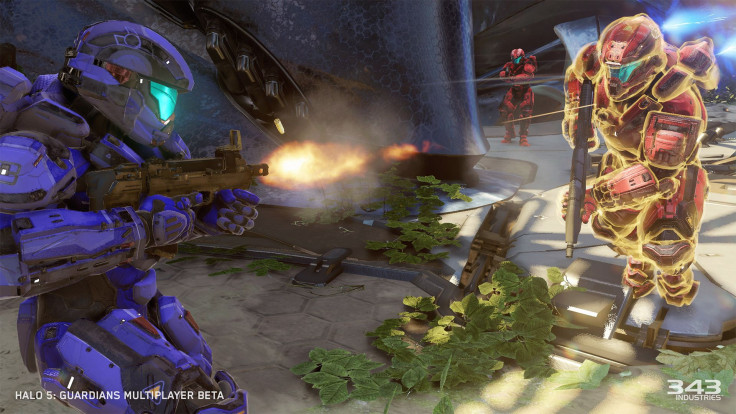Does Halo 5 Make Mictrotransactions in AAA Games Acceptable?

Microtransactions have long been a popular and accepted revenue-generating strategy in free-to-play video games, but publishers have understandably met with resistance when implementing the same tactics in full-priced, major game releases. A handful of games have been successful implementing microtransactions, however, and the upcoming Halo 5: Guardians may join that group.
343 Industries, the developing studio behind "Halo 5: Guardians," published a blog post explaining the decision to implement microtransactions. Players fear that they’ll be urged to make extra purchases on top of the game’s full $60 price to stay competitive in online multiplayer, but 343 Industries says that the content in question will be mostly cosmetic. With this attitude, more gamers may come to accept microtransactions in more AAA games.
The original concern, voiced by series fans on Halo’s forums, was that Halo was adopting microtransactions in a “pay-to-win” format: Those who were willing to spend some extra money to acquire content would get weapons stronger than the standard loadouts, giving them a distinct advantage in online multiplayer modes. While it is true that "Halo 5" will use a point reward system called “REQ” (short for requisitions) to unlock content and rewards, Josh Holmes, Studio Head for Halo 5 Guardians, briefly explained the system in a blog post on Halo Waypoint, the hub website for Halo:
Players will earn REQ Points after each match in Arena or Warzone multiplayer, which can then be redeemed for REQ Packs. So what goodies are in REQ Packs? Each pack contains a variety of requisitions (REQs) in the form of unlockable weapons and armors, skins, assassination animations, and more. In addition, players will receive REQ Packs as rewards when they level up their Spartan Rank (SR) and complete Commendations across multiplayer.
To contextualize this: “Battlefield 4,” a first-person shooter published by Electronic Arts, has a very similar setup with its “Battlepacks.” Players earn packs by completing online matches and leveling up naturally, but are also presented with the option to spend real money for more packs. The packs focus on personalization, rather than upgraded equipment, so the game’s playing field can stay relatively balanced -- in theory.
"Halo 5," for the most part, would be doing the same thing alongside the series tried and true “unlock new weapons when you rank up.” Still, players could unlock new weapons right away that could alter the game’s competitive balance But Holmes said that is something 343 Industries has taken into consideration:
While players will earn REQ Packs across both Arena and Warzone, only cosmetic items can be used in our Arena experience. This is to ensure that all players start with the same weapons and abilities as part of our vision for the balanced, competitive play in Arena multiplayer.
While there is a legion of gamers who decry any presence of microtransactions in AAA games, Microsoft has a shrewd strategy here: The money the companies make from the paid add-ons will likely fund most if not all of the free DLC maps Halo 5: Guardians will have. Not only that, but a portion of the proceeds will be used for the Halo Championships prize pools. Gamers may not like the idea of microtransactions in Halo 5 even if they never use them, but if Microsoft can spin them as a good thing, gamers might soften their stance. But there's still a large potential issue.

There’s a valid argument that, despite enhanced weapons being limited to the chaotic, less-skill-based Warzone mode, players who pay extra will have a leg up on the competition. All of these requisitions will be available for everyone who amasses experience normally, though those who pay extra ride the fast track. But “Warzone” will function much like Halo 4’s “Dominion” mode: Players will have to perform well to even have the opportunity to call in their enhanced weapons, and with 12 players on the opposite team, it’s likely that someone else will be able to take them out regardless. Matches will also have restrictions placed on certain weapons, so it’s hard to say that paying extra would impact anything except a person’s wallet. So long as normal players don’t have to grind endlessly to get the same things spendthrifts do, this shouldn’t be an issue.
The idea of microtransactions in full-price console games is still contentious as best, but publishers want to exceed profit margins. As long as Halo 5’s multiplayer is balanced, this could be a road map for future implementations of microtransactions.
Halo 5: Guardians releases October 27th, 2015.
© Copyright IBTimes 2024. All rights reserved.





















